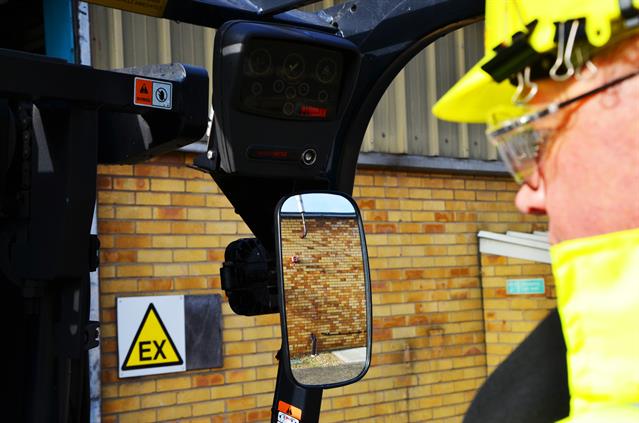 Pharmaceutical firms will be impacted by new forklift rules. |
An update to the EN1755:2015 standard introduced late last year is likely to affect how pharmaceutical firms, and their suppliers, manage their forklifts.
"Pharmaceutical manufacturers are handling high volumes of flammable material when feeding their production process. This could be in the form of gases, flammable liquids or powders," says Rob Vesty of safety company Pyroban. "Production and storage areas are therefore classified as hazardous zones where there is a risk of explosion."
With many different types of forklifts used to transport flammable ingredients, pharmaceutical companies usually specify explosion-protected trucks that comply with ATEX 2014/34/EU. EU standard EN1755 helps to achieve ATEX 2014/34/EU compliance, but has changed from November 2017. EN1755:2015 will supersede EN1755:2000.
"The changes to EN1755 affect pallet, stacker or reach trucks, VNA and any counterbalance trucks used in storage or production areas inside," Vesty explains. "Outdoor activities are also affected; for example, in bulk storage areas where there are tanks of solvents, or waste storage areas. Waste management companies are also affected, as well as suppliers to the pharmaceutical industry."
Most of the trucks affected by this change will be used in Zone 1 or Zone 2 areas, but many are needed in Zone 21 or 22 areas where powder is the hazard. Electric trucks are typically chosen for pharmaceutical operations to ensure facilities are kept as clean as possible.
"Static build up and friction can create enough energy to cause ignition, so one of the key changes to EN1755 was that static is now considered a 'normal' occurrence in Zone 2 hazardous areas," he adds. "This affects the technical design of the truck and elements like tyres, seats, armrests, cabin sides and hydraulic systems, and more."
According to Vesty, to ensure ongoing compliance, forklift dealers need to make sure that engineers are fully trained and aware of the recent updates to EN1755. Approved service schedules should be followed, and approved parts should be used, which may also have been affected by the EN1755 update.
Pyroban also recommends that a safety audit is carried out annually.